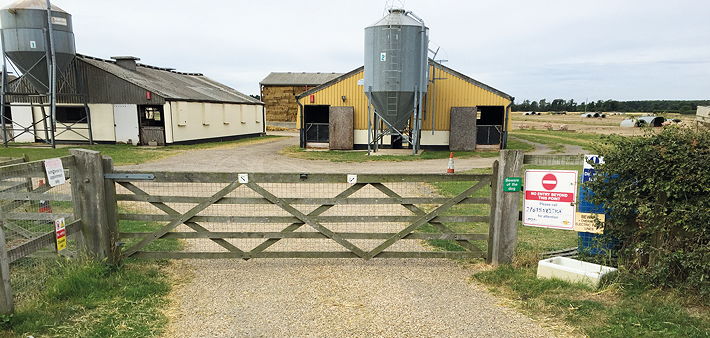Annie Davis has worked at the George Veterinary Group for 19 years. She is one of a team of seven pig vets, based in Malmesbury, Wiltshire
As someone who has had several episodes of leaving things on trains (phone, coat, countless umbrellas) I’m always reassured when I read of the things other people leave behind on public transport.
There is the usual collection of phones, wallets, keys. There’s also a more eclectic collection of the weird, including prosthetic limbs and a stuffed armadillo; and then the deeply disturbing, such as a bag of eyeballs or a life-sized cardboard Donald Trump.
Perhaps travellers should not only be asked to check they have all their belongings with them at the end of their journey, but also to check their seat before that journey commences to prevent unpleasant discoveries?
The NPA has launched its #MuckFreeTruck campaign to reinforce the need for tougher biosecurity around transport. Even with the most stringent internal biosecurity measures and processes for staff and visitors, farms cannot avoid transport from outside the unit coming onto or adjacent to it.
For most units this is the biggest threat to their health status, as in most cases they will have been used to haul pigs from other units or to drop pigs at an abattoir. The onus to reduce the risk to each unit should not rest entirely with the haulage company, but also with the unit staff.
Ensuring trailers are clean before allowing them on to a unit is not just for high health units. Dirty trucks, like absent-minded commuters, may leave more on the farm than they take away in terms of diseases.
The experience of other countries with PED and recent cases of swine dysentery in the UK have highlighted the role transport can play in spreading unwelcome bugs around farms. There is a wider responsibility, though, not just in preventing the spread of endemic and infectious disease on a local level.
Our national industry needs to operate efficiently and we are also under pressure to reduce antimicrobial use and our environmental impact and ensure the efficient utilisation of the feed and water resources available for pigs. When this is placed against a growing population and a requirement for dietary protein, being anything less than diligent is irresponsible.
While retrieving lost items may be a nuisance, restoring the health of a compromised herd is a costly and often complex process.
Recognising the risks associated with transport, implementing a simple protocol to inspect vehicles and providing PPI (boots, overalls) for visitors are not difficult to achieve and may prevent an unwelcome, if unintended, problem left behind.




